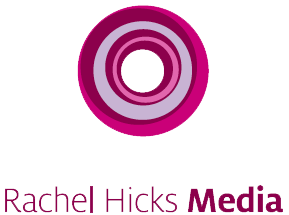By Rachel Hicks
I was left horrified this week.
In conversation with the Communications person at a large London based organisation we discussed their approach to media training.
“Oh, our Director General deals with the media when there’s a crisis” he told me.
“What if he is ill or on holiday?” I asked, trying to hide my astonishment.
“Oh well I do the rest. We’re good team and happy with how we perform. I do suggest annual refreshers to the Director General but he doesn’t think he needs them.”
Sadly, this approach is all too familiar. I have seen it a lot in companies who think that the top man (it usually is male) and perhaps his right hand man are the only people to be trusted with doing interviews.
In the 20 years I have been media training, the companies that have the best media presence and most effectively protect their reputation when something goes wrong, are the ones that have invested in many media spokespeople. These are forward thinking companies who know that it pays dividends to imbue their teams with key messages, confidence to do a strong interview and an understanding of how journalists work.
Here are the 3 main reasons to invest in your media spokespeople:
1. Journalists Want Access Fast
By having a team of spokespeople ready to talk to the press, you are more likely to be able to supply someone to grasp the media exposure, rather than your competitors. If only one or two people are able to do interviews it could mean they are unavailable at exactly the time the journalist wants them.
2. Authenticity is Vital
The media want to talk to real people doing real jobs. They hate PR people who are perceived as putting “spin” on story, they don’t necessarily want the CEO presiding over affairs from their smart offices. Having a variety of spokespeople thoughout your organisation, ready and confident to be interviewed will strengthen your chances of grasping a media opportunity.
3. A Crisis Eats Manpower
The media will be on your back when something goes wrong. They will be camped outside, demanding interviews and updates around the clock. In a crisis you need to have planned your communications strategy and your team to be able to work in shifts. After 24 hours most people will need to sleep, but the media will still want interviews, so having a wide variety of media trained spokespeople will ensure you always have a confident spokesperson available.
Rachel Hicks is Head of Media Training at Rachel Hicks Media Ltd. For more information about our media training courses or to book one, contact us at: rachel@rachelhicksmedia.co.uk or visit our website: www.rachelhicksmedia.co.uk

